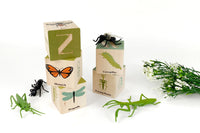By Kathryn Peck
My oldest son was thrilled to get Monopoly for Christmas this year. I think it’s safe to say that since its inception in 1935, this property-trading board game has been captivating willing audiences and painfully dissuading others at the same time.
Since its inception in 1935, this property-trading board game has been captivating willing audiences and painfully dissuading others at the same time.
I walked into the living room the other day to see my son playing with his younger brother, and it was déjà vu all over again.
There was my 4-year old with nothing but a few meager properties like the $60 Baltic Avenue and a miscellaneous Reading Railroad, and nothing more than a few dollars in a stack in front of him. His older brother proudly rolled the dice with a healthy lineup of well-organized properties including the prized $400 Boardwalk and $350 Park Place, and an equally healthy lineup of cash, houses and hotels.
I stepped in to offer some advice because deals were about to be made (and not good ones for the younger of the two), but no one was interested. The truth is, the younger sibling was enjoying himself and was just happy to have been asked to play, as was I years ago when I played the same game with the same measly properties and cash flow problems with my older brothers. Sure, I’d give my brother Pennsylvania Avenue in exchange for Vermont Avenue, because if I didn’t, he’d take the board, pieces and all, into his room and close the door. (If you know Monopoly, you know that’s not a good deal to take.)
While my son can keep a single game going for days at a time, I would just assume pack it up at the end of the day and pray everyone’s still on speaking terms. The game always starts out with such optimism and potential, but it quickly snowballs into all-out class warfare.
While my son can keep a single game going for days at a time, I would just assume pack it up at the end of the day and pray everyone’s still on speaking terms.
Monopoly just isn’t for everybody. There’s a reason why they say the Queen of England has banned this game from being played in her home. So, if Monopoly isn’t your cup of tea, here are a few other games that might be easier on you and the family.
Zingo!
A twist on classic bingo, Zingo (and its many versions, i.e. math, sight words, etc.) makes this list because it's largely based on chance, which minimizes the potential for squabbles. It’s simple enough—match the pictures/words with the challenge cards—but it’s fun for the whole family.
Perfection
This game may create pangs of anxiety for some, but for others it’s pure fun. We like Perfection because players take turns, one at a time, so competition remains friendly and light. Players get 1 minute to match all of the different shaped pieces into their spaces. If you don’t get them in time, the board pops and pieces fly (hence, the anxiety).
Go Fish
Perhaps on the simplest of card games, Go Fish remains a family favorite. Cards are dealt, and players take turns asking other players for specific cards with the goal of creating matches. If you don’t have the card, you answer “Go Fish” and they draw from the deck.
Uno
This is a game with staying power; I played it with my family as a child and my children play it today. Because a lot of Uno is matching colors, little ones can play it, too (with a little help on the trickier special action cards). Players simply take turns matching a card in their hand with the current card shown on top of the deck either by color or number. Special action cards like Draw Four and Skip add to the fun, and nowadays the game includes customizable cards, too.
Memory
It’s hard not to come across Memory games at some point, but they truly are fun for any age. With all cards face down, each player flips two over with the hopes of getting a match. We like picture book illustrator Alain Grée's Animals Matching Game with 18 different animals to match up.
Jenga Classic
The concept of Jenga is simple: build a tower, then each player takes turns of removing blocks until it topples. What could be more fun?
Copy that Face
You know what the best part of this game is? It’s essentially silent, give or take a few giggles. Players are dealt cards with different silly faces on them, and the play is similar to Go Fish, but instead of asking for a card the player has to make the face. If you have it, hand it over. If you don’t, stick out your tongue and the other player must draw a card.
Yahtzee
This classic game is played with 5 dice. Each player rolls the dice three times with the goal of racking up the most points in different categories (e.g. 3 of a kind; full house). If you’re playing with little ones, just team up and let them roll the dice. It’s a little bit strategy and a little bit luck—a recipe for a good family-friendly game.
Spot It!
The concept is pretty straightforward, but it is fun–and challenging–for all ages. Between any two cards there is always one matching symbol. Players simply spot it fast to win. There are different ways to play and different versions of the game, too.
-
About the author: Kathryn is the owner of Bicycle Pie and mom of 4 little ones. Also a writer, editor, and former owner of one of Boston's premiere baby boutiques, she continues to write about motherhood, children's products, family life, and all other things that test our skills and patience as parents.
Photo credit: iStock.com/martince2




